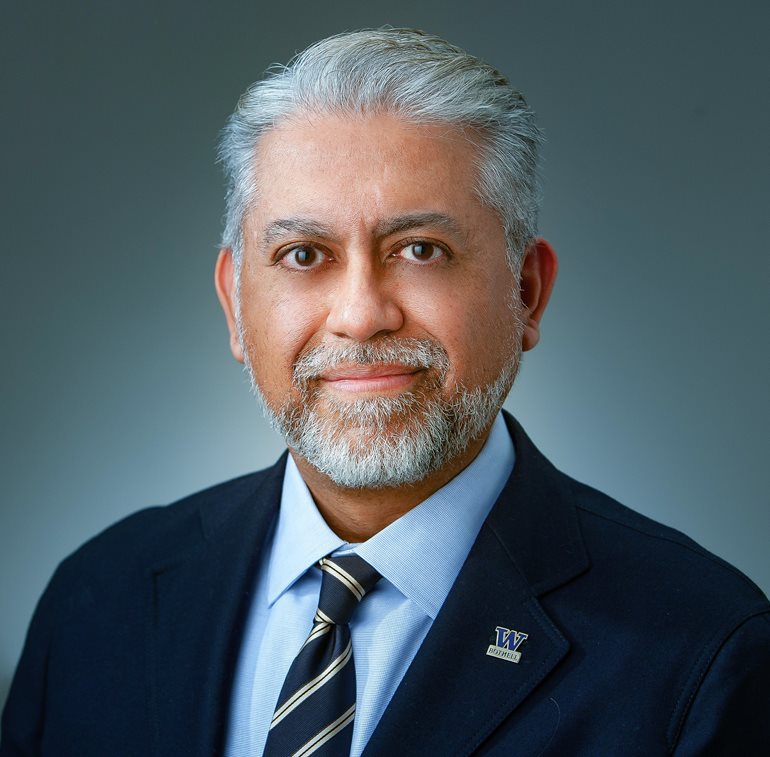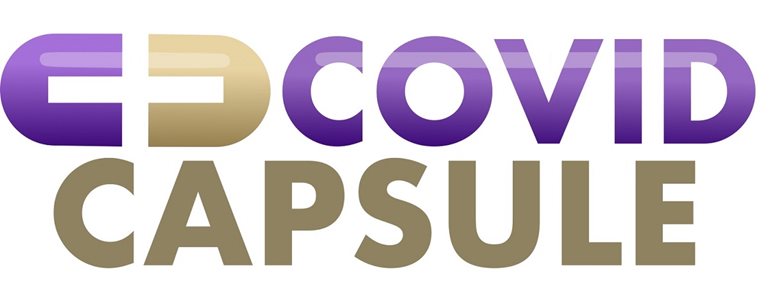
Dan Bustillos saw a pandemic coming this winter and decided on a new course.
The assistant professor in the School of Nursing & Health Studies quickly designed what is a timely spring quarter course at the University of Washington Bothell — Coronavirus Pandemic: The ethical and legal implications of pandemic preparedness and response.
Now, 39 students in two sections of the course are learning in the moment. Their main project is Covid Capsule, a news and media aggregator. Students are collecting and curating articles, videos and podcasts for each day of the pandemic.
Even as they analyze the implications of the pandemic news, they are creating a database that will serve as a time capsule for others to use. Click on a day and see statistics and graphs as well as headlines and media that put the numbers in the context of what was happening in the world that day.
A pandemic timeline

“I would like it to be repository of information that will help us understand the progression of a pandemic,” said Bustillos.
Covid Capsule could help vaccine developers benchmark dates. Social scientists could use it to follow the spread of misinformation. A preparedness task force could see when supply chains broke and stockpiles were depleted. Politicians could see what missteps to avoid next time.
Bustillos also may make Covid Capsule part of future student projects. A research assistant or volunteers could continue the work to the end of the pandemic and beyond. It’s an open database on the WordPress web-publishing platform.
“So much media and news are being produced every day that we could work for years to amass a really good database,” Bustillos said.
The Washington State Public Health Association has already looked at using Covid Capsule. Bustillos has met with Executive Director Jeff Ketchel (Master of Arts in Policy Studies ’08) about a possible collaboration with the pandemics classes.
Repeating past mistakes
Bustillos has been at UW Bothell since 2015, teaching public health ethics and law. Beyond this quarter’s pandemics course, he’s been applying his expertise in public health policy making. He has been working with the Washington State Coalition for Language Access to make sure that coronavirus notifications and information are available to patients with limited English. He’s also working with health care institutions and agencies for equity policies.
Public health officials thought they had learned from previous pandemics and prepared ways to mitigate and alleviate mistakes, Bustillos said.
“And, it turns out we were pretty much wrong. We made all the same mistakes, and in some cases, we made them worse than we did 100 years ago.”
While many local and state agencies have done an exemplary job, there’s been a lack of leadership, he believes.
“I see a failure in the top brass in many different places, not just in the United States, to handle this in an apolitical way — to handle this as if it were a public health emergency and not some kind of political threat,” he said. “That’s really hobbled our response.”
Up side of down
Among the implications Bustillos sees from COVID-19 may be better preparations for the next time a pathogen comes along, including a better stockpile of personal protective equipment for health care workers.
“We cannot make these mistakes again, especially if we have something that is far deadlier than this,” Bustillos said.
One impressive development has been the way medical research ramped up like never before. Bustillos would be surprised if there were a coronavirus vaccine before May 2021 — “but I want to be surprised. I’m rooting for them to do that.”
There also has been “heroic” work by places such as the UW Medicine Virology Lab, which is testing coronavirus for the city of Seattle, the state of Washington and beyond, he said.
“I’m proud I’m at the University of Washington because there are so many people doing such great work on this pandemic,” Bustillos said.
Some other beneficial side effects of the pandemic have been fewer than expected cases of the seasonal flu, thanks to social distancing. And people who distrust vaccines may be changing their minds. Restoring trust in vaccinations because of COVID-19 would be a plus for public health, Bustillos said.
In the future, those may be the more-promising milestones that students note in the Covid Capsule timeline.



